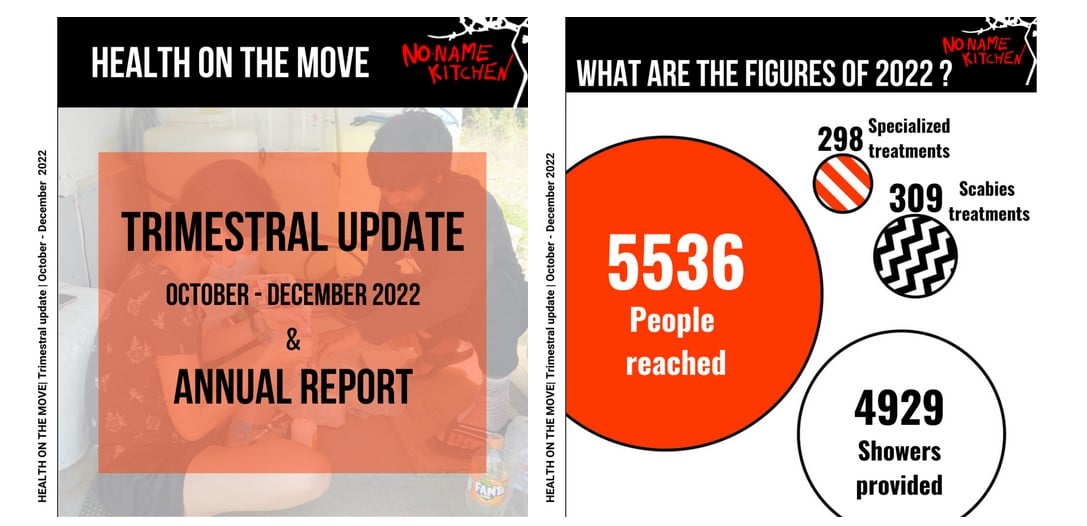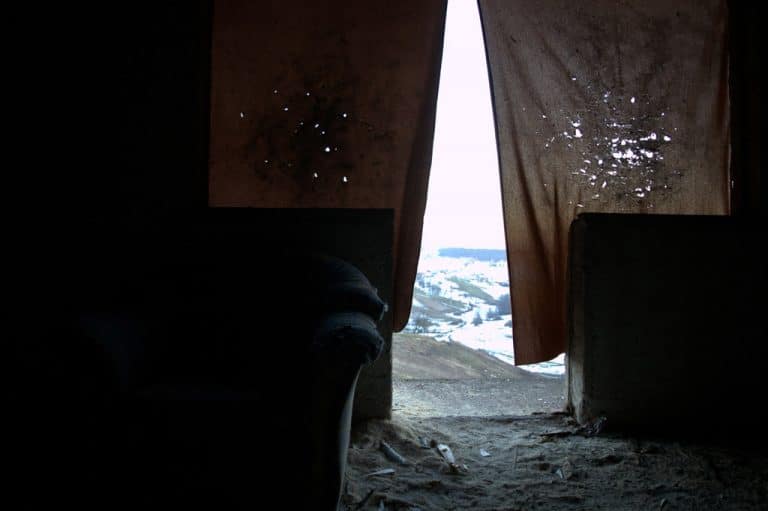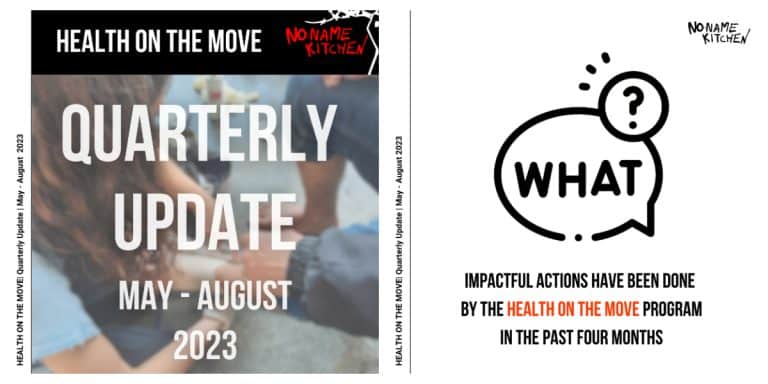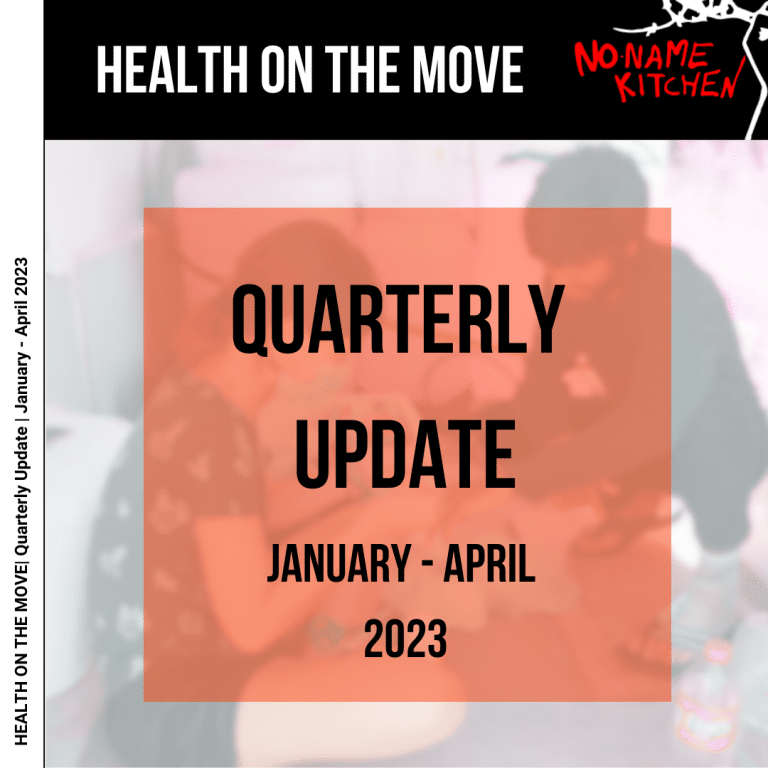By No Name Kitchen
Every three months, No Name Kitchen sends a newsletter to our donors and supporters updating with the news about our Health on the Move project. In this case you have information about the whole year, plus what we have done in the last quarter of the year.
We would like to thank all donors who supported us in 2022 and enabled us to reach 5,536 people with our health programme.
Of these, as many as 298 benefited from specialized treatment, i.e. ad personal support: with our health programme we try to understand the medical needs of each individual person and find the most suitable solution. This can be either by using public services in the area, where possible, or by connecting and financially supporting people with private clinics and specialized treatment, such as a dentist, ophthalmologist, orthopaedist, physiotherapist, gynecologist, etc.
In addition, thanks to your help, we were able to provide hot showers to 4,929 people who were in situations where they did not have access to sanitary facilities, including 309 who were also treated for scabies. Disease and infection prevention is of particular importance to avoid major medical problems later on, which is why we try to provide as many warm showers, changes of clothes, and hygiene products as possible!
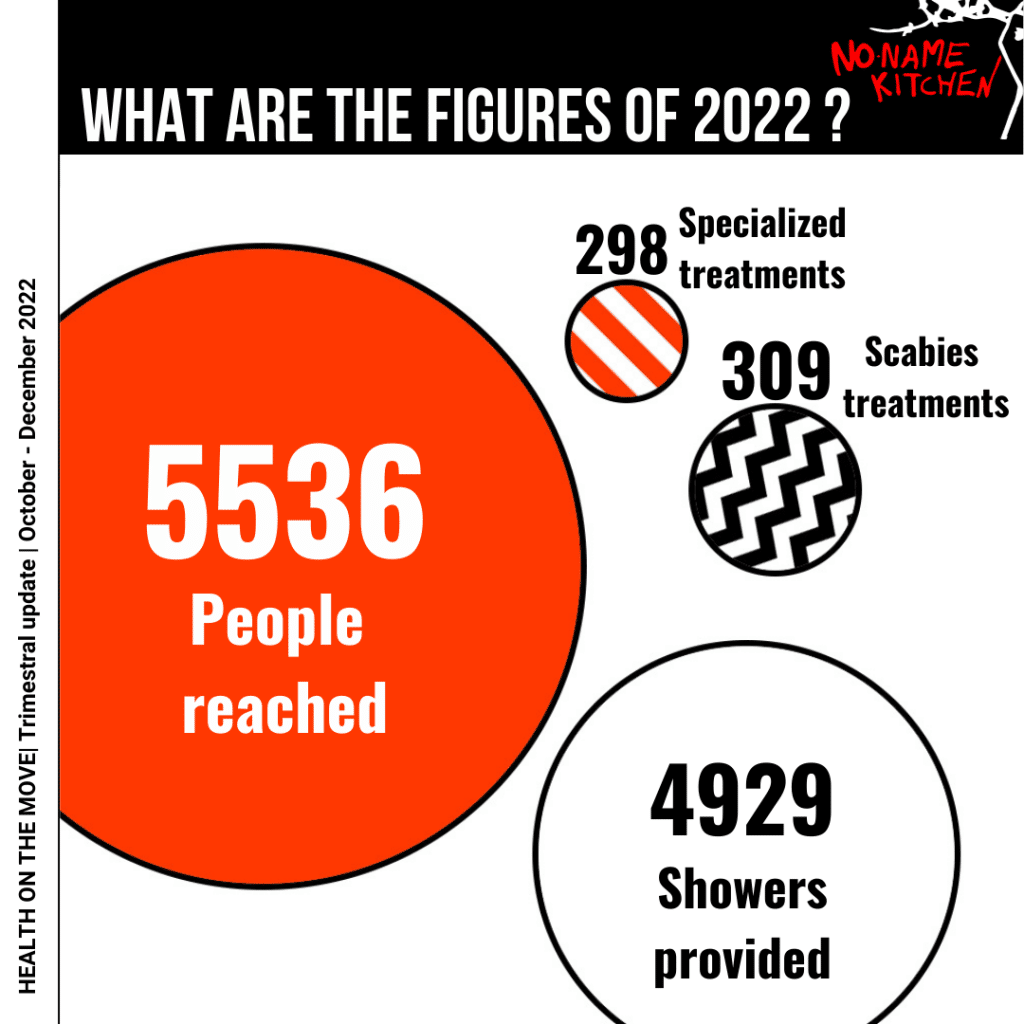
To continue supporting people on the move we need each and every one of you!
Health on the Move from October to December 2022
As every quarter we share with you what HEALTH ON THE MOVE PROJECT was able to do in three months with your great support. Here the information of what No Name Kitchen has done in health from October to December 2022:
Showers and hygiene:
In the last quarter of 2022, we were able to provide showers for around 900 people. Also, everyday we distribute soap, toothbrush and toothpaste, underwear and shaving cream.
Compared to the previous quarter, for those who have been following us for a long time, the number of showers provided is lower, however, as explained several times the realities in which we work are very volatile and our activities also adapt to the situation.
Firstly, winter has arrived, so it is normal that fewer people require showers, despite the fact that our showers are warm.
Secondly, it is physiological that with winter approaching, some people have chosen to spend the winter in the official camps or in cities far from border areas where we are and where policies for people are more gentle, despite the fact that the living and hygienic conditions are not optimal, but in general in winter the numbers of people on the move who decide to live outside the camps tend to decrease a little. Most women families and children decide to spend the winter in the camps.
And in third place, police officers in Serbia and in Bosnia and Herzegovina are forcing people into camps, evicting the abandoned houses where they are living with violence.
Scabies
Together with the hot showers, as always, we also provide treatment for scabies. Remember that the complete treatment for scabies requires several steps: showers, treatment (cream), complete change of clothes, change of blankets and sleeping bags (they have to be washed at high temperature), and repeating the treatment after a week.
People have scabies because of the terrible conditions of the places where they are living (camps included). People on the move have no right to rent a house to live in the areas where we work, so they stay in abandoned buildings.
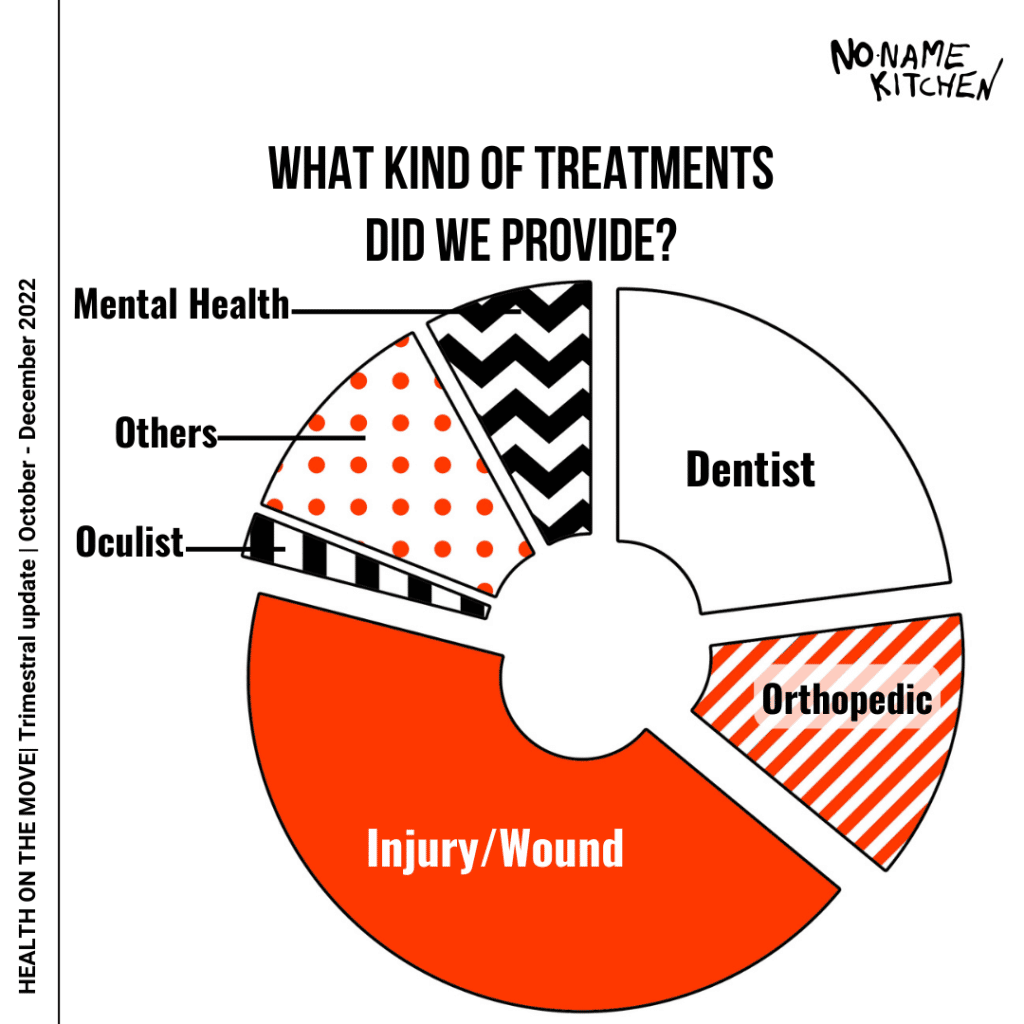
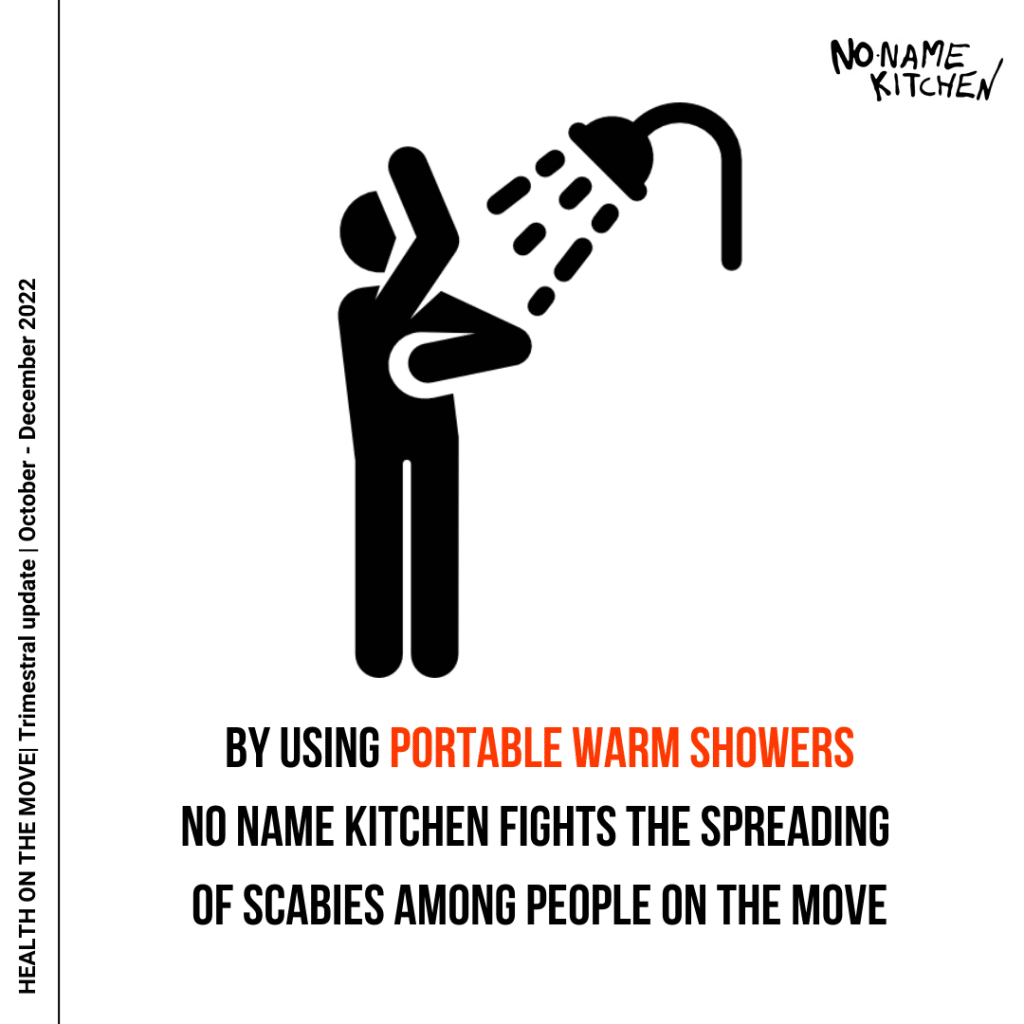
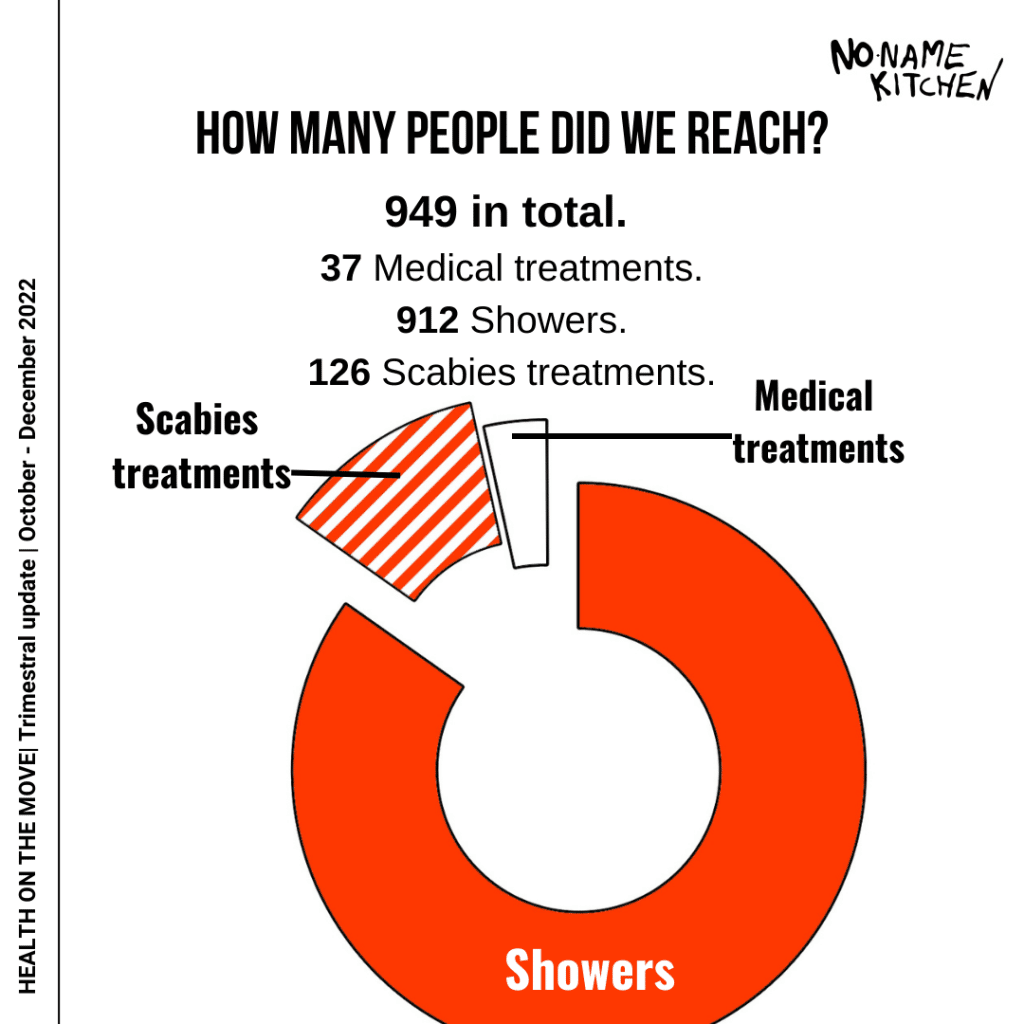
Specialized treatments
In recent months, we have also managed to provide 37 specialized treatments. Our health programme is divided into first aid (‘minor injuries’, small medical problems that can be solved with first aid medical treatment) and specialized treatment.
When first aid is not enough, the NNK with its Health on the Move programme is able to connect the person in need of specialized treatment with local health services, and when this is not possible with private health services.
We are talking about situations such as: dentist, ophthalmologist, orthopaedist, physiotherapist, gynecologist, etc. It is important to remember that sometimes the problem of non-access to health services is on a racial basis and/or a language barrier, so having someone to ‘act as an intermediary’ is always very important.
We see this for example very clearly in our projects in Ceuta or Greece, which being EU access to public health services should be free and easy for all, but this is not the case.
Health on the move: treating each case with special care
With our health programme and specialized treatments we manage to help people ‘on an ad hoc basis’, this is the power of our programme, because normally even health aid associations focus a lot on emergency and first aid while hardly any, except us, provide or facilitate this kind of help.
An example, may be the story of A., a young boy with type I diabetes, who had lost his (life-saving) insulin while traveling: our team met A. during a distribution in the port of Igoumenitsa and we were quickly able to provide him with help.
Again, most of the people we meet have problems and injuries related on the one hand to the poor hygienic conditions in which they are forced to live, and on the other hand to injuries caused by the police. The data we collect informally confirm this.
Dental cases continue to be an important part of our programme, and one that needs constant donations, because as you know dentists are an expensive treatment, as is the ophthalmologist. Imagine you making the journey without your pair of glasses … and most of the time the glasses are destroyed or stolen by the police.
Help us to cotinue: https://donorbox.org/health-on-the-move

